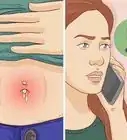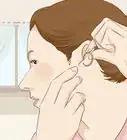wikiHow is a “wiki,” similar to Wikipedia, which means that many of our articles are co-written by multiple authors. To create this article, volunteer authors worked to edit and improve it over time.
There are 9 references cited in this article, which can be found at the bottom of the page.
This article has been viewed 28,156 times.
Learn more...
Body piercings raise a number of concerns, including health risks, the perceptions of potential employers, and more. Teenagers may not have considered all the consequences of getting a body piercing and may not be ready to commit to the decision. With your teenager's best interests in mind, you may want to talk your teen out of committing to a body piercing for the time being. This guide will help you and your teenager come to mutual understanding about self-expression; it will not help you unilaterally make decisions for your teenager.
Steps
Respecting Your Teenager
-
1Understand why your teenager might want a body piercing. Teenagers are learning how to express their individuality and obtain membership in social groups. They may act differently than before, accepting or rejecting new types of friends or striving to be recognized by different kinds of social groups.[1] This experimentation with identity may be simply behavioral or emotional, but it can also be physical--teenagers may try new fashions, sexual habits, or ways of decorating their body. A piercing may promote acceptance within a clique or may be pure self-expression.
- Take time to understand what a body piercing might mean to your teenager. You may even ask them directly. Often, it signals a shift toward adulthood and autonomy and away from childhood. Sometimes they may not be able to articulate this directly.
- Take time to understand your own feelings about the matter, especially if they are feelings of opposition. Curiosity and acceptance from a parental figure, rather than hostility or suspicion, will strengthen mutual respect within a family. If you show your teen child that you respect their interests, you will often receive respect in return, and will model healthy relationship habits for your teen. [2]
-
2Determine where their motivations are coming from. Though respecting your teenager is key, they still need guidance. Is the piercing a choice that they are making for themselves, or is it one that their friends are making for them? Does your teenager want a piercing for its own merits, or do they just want to "fit in"? Respecting your teenager's choices also means respecting your teenager's need to develop good decision-making skills. Helping your teenager determine their own motivations can help them strengthen their social awareness, self-reliance, and emotional resiliency, all of which are key skills. [3]Advertisement
-
3Accept your role as a guide. Teenagers do need structure in their lives, even if they are exploring and experimenting.[4] Setting age-appropriate goals can be a successful way to guide your teenager in their decision-making. There are many safe ways for teenagers express themselves that will not have as long-lasting effects as a piercing does. Depending on your teenager's age, help them set goals that satisfy their need to experiment while keeping their level of development in mind.
-
4Help young teenagers plan and explore alternatives. Young teenagers may not have as well thought-out reasons for their motivations. Often, presenting simple alternatives can help them probe their reasoning. If your teen is 14 and asking for a body piercing, it may help to mutually set a later age at which a piercing will be acceptable. This will give them space to plan for the event, think through consequences, and possibly talk themselves out of it.
- Children aged 10-14 begin to be more emotionally volatile and concerned about their social presence, but are only beginning to think in abstract terms.[5] Understand their decisions as a "trying-out" of new emotions, ideas, and preferences.
-
5Help older teenagers set realistic goals. If your teen is older, from 16 to 18 years old, respect their growing expectations of pending adulthood and allow them to set their own goals.[6] Give them adult insights about the consequences of their actions in relation to their other goals. This will help put their choices in perspective.
- Consult them on plans for further education. A piercing may have important consequences based on what they wish to study and where. Piercings and other body modifications may or may not impress peer groups, instructors, admissions committees, or scholarship foundations based on where they want to go.
- Consult them on plans for work. Considering their preferred job may help them decide if getting a piercing is an appropriate choice for them. A law office, for instance, will have different expectations than a graphic design firm.
Presenting Reasons to Not Get a Piercing
-
1Get to know your own knowledge and authority. There are a number of reasons why a parent might oppose body piercings. There may not be reliable piercing facilities nearby, or teenagers may not be ready to take hygienic responsibility for their piercing, which can both be health problems. A piercing may detract from your teenager's goals in ways that you uniquely anticipate.
- Alternatively, parents may simply have distaste for piercings. If you oppose a piercing, make sure you are not simply projecting a fear or personal preference upon your teenager--this does not help your teenager develop reasoning skills, but simply prevents them from practicing autonomy in a healthy way.[7]
-
2Avoid being dismissive. Whether or not a piercing may be a good idea for your teenager, be fair to them. Don't try to "win" arguments based on your own age or authority. Rather, be clear about what you think their best interests are, as well as your own and those of the family as a whole. If your teen senses that you are immediately dismissive, they won't be able to hear what you have to say. Listen first and then offer your perspective and advice.
-
3Offer proof for your position. Teenagers are more likely to respond to a parent when the parent has clearly taken the time to consider the issue fully. Be able to articulate your position, read up on the consequences of bodily piercings, or consult a professional to gain more information. Give yourself time to process and sort your findings.
- Allow your teenager to be an expert, too. Ask them what sort of piercing they want, where they want it, who they want it from, and why. Ask them why they prefer one option over another. Allow them to take part in the research and decision-making process.
- Allowing your teenager to be an expert can also help them decide if they want to commit or not. If a piercing is just a whim, they may quickly abandon the idea when pressed for information.
Discussing Honestly and Openly
-
1Consider pros and cons for getting a body piercing. Have your teen list what he or she sees as the positives of getting a piercing. Ask them to consider cons if they don't have any they can immediately see. You can use this understanding to better resolve the issue--your teenager may be able to more clearly understand their motivations once pros and cons are listed and consulted. If they deny that any cons exist, postpone the discussion and come back to it later once they've had some time to reflect.
- It may be useful to refer your teen to a third party, such as someone who has had a piercing before, as your teen can learn about his or her experiences.[8]
-
2Express appropriate concerns. Explain your concerns in a thoughtful, non-judgmental way. Tell your teen if you are concerned about how they will be perceived, or about the impact of getting a body piercing as they age and mature. Teenagers can be receptive to a wide range of reasons, including health reasons. Remember, the issue is not about your taste or preferences, but about your child’s well-being, now and in the future.
-
3Prepare responses to common reasoning. Your teen may resist accepting your explanation that a body piercing is not the best idea for them. There are better and worse ways to reply to many of these responses, and it will help to anticipate them. Some samples of good replies might be the following:
- Teen: “Everyone at school has them!” or “All of my friends have them!”
- Parent: “Your friends John and Sara don’t have piercings and you really respect them. In fact, many of your older friends don't have piercings, and for good reasons that make sense to them. I want you to feel like you belong at school, but getting a piercing won't guarantee that. Maybe think of the goals that your friends have for being pierced or not pierced and see if they line up with your own.”
- Teen: “My boyfriend/girlfriend really likes it.”
- Parent: “You don’t need to change your body or who you are to meet the preferences of your partner. If they’re not happy with you the way you are, you might want to wonder why they're with you. Besides, what if this relationship doesn’t last? You’ll be stuck with the piercing, a painful reminder of a relationship that didn’t work.
- Teen: “It’s my body so it should be my choice.”
- Parent: “That's true--you do have choices about your body and how you present it. But while you are under my care, it’s my responsibility to take of you and your body until you are an adult. It’s totally normal to begin asserting your independence at your age, and soon you’ll be able to get as many piercings as you like. But, for now, I have to do what I think is best for you in the long run--this won't prevent you from getting piercings when you are older, when I think it's more clear that you're ready for them.”
- Teen: “Everyone at school has them!” or “All of my friends have them!”
-
4Discuss the health risks of getting a body piercing. Your teenager may be unaware of the potential health risks associated with body piercings. After having researched the topic, you will be in a good position to inform him or her of the risks. Some of these risks include[9]
- Skin infections
- Allergic reactions
- Damage to teeth from tongue rings – repeated contact can chip away tooth enamel
- Hepatitis B, Hepatitis C, and other diseases can be transmitted through unsterilized needles
- Tissue tearing if the piercing gets caught on hooks, zippers, corners, etc.
Seeking Out Possible Compromises with Your Teen
-
1Offer alternatives to current trends. If your teen’s reason for wanting a piercing is to fit in with others, there are probably other ways to accomplish this goal. For instance, instead of a body piercing, use the money for the piercing to get a trendier cell phone, clothes, or haircut. This way, your teen can feel like he or she is fitting in without piercing his or her body. [10] Here’s how a conversation about fitting in might go:
- Teen: “I’m going to get my tongue pierced.”
- Parent: “I’m not sure that’s a good idea.”
- Teen: “But all my friends have their tongues pierced. All of their parents said it was fine!”
- Parent: “I understand what you’re saying. I remember when I was young, I wanted to get the same exact clothing brands as my best friends. But there are ways of getting along with your friends without piercing your tongue.
- Teen: “It just looks cool, though.”
- Parent: “Piercings can get infected, and tongue studs can chip away your tooth enamel and lead to longer term damage to your teeth and gums. Aren’t your friends all wearing horn-rimmed glasses? Those look pretty cool! Let’s look into some cosmetic glasses. They don’t carry the same risks as a tongue piercing, and I'd be more comfortable with you wearing them.”
- Teen: “I’m going to get my tongue pierced.”
-
2Offer alternatives to body piercings. For instance, your teenager could use clip-on jewelry for the nose, which would not require piercing the body. After using the clip-on for a while, they may grow tired of the look and change their minds about wanting a piercing. Here’s how the conversation might go:
- Teen: “I want a nose piercing.”
- Parent: “Are you sure? You have to take your senior portrait taken soon. Do you really want to have your nose pierced in a picture you’ll keep forever?”
- Teen: “I hadn’t thought about that, I guess. Still, I really want a septum piercing. It just looks cool.”
- Parent: "How about a clip-on piece? That way you can try out the look, but take it out for your senior portrait. If you like how it looks, you can get the piercing when you’re an adult. But if you end up changing your mind about it, there’s no harm done.”
- Teen: “I want a nose piercing.”
-
3Offer alternative ways to express individuality. Teens can express themselves through their hairstyles, clothing choices, extracurricular activities, posters, music choices, and many other ways. Work with your teen to find other outlets to express their unique personalities. Here’s how the conversation might go if this is the reason your teen wants a piercing:
- Teen: “I’m thinking about getting a lip ring – maybe a loop.”
- Parent: “Really? Why?”
- Teen: “Why not? It would just make me stand apart from other people. I think people with lip rings are more confident, and I want to express that I’m confident, too.”
- Parent: “I see. I think you stand out in a lot of ways already, but I understand how it’s important to express yourself. Does a lip ring really say much, though? What if we dye your hair another color instead? You’ve talked about that sometimes. That way you can stand out without having to worry about cleaning the piercing all the time or risking an infection.”
- Teen: “I’m thinking about getting a lip ring – maybe a loop.”
References
- ↑ http://psychcentral.com/lib/your-teens-search-for-identity/
- ↑ http://www.empoweringparents.com/do-your-kids-respect-you-9-ways-to-change-their-attitude.php
- ↑ https://www.parentmap.com/article/ten-life-skills-for-teens
- ↑ http://extension.illinois.edu/familyworks/teen-03.html
- ↑ http://www.parentfurther.com/content/ages-10-14-developmental-overview
- ↑ http://www.parentfurther.com/content/ages-15-18-developmental-overview
- ↑ http://www.allparenting.com/my-family/articles/969879/how-parental-anxiety-affects-kids
- ↑ https://www.parentmap.com/article/what-to-do-when-your-teen-wants-a-tattoo-or-body-piercing
- ↑ http://www.mayoclinic.org/healthy-lifestyle/adult-health/in-depth/piercings/art-20047317


-Step-5-Version-3.webp)





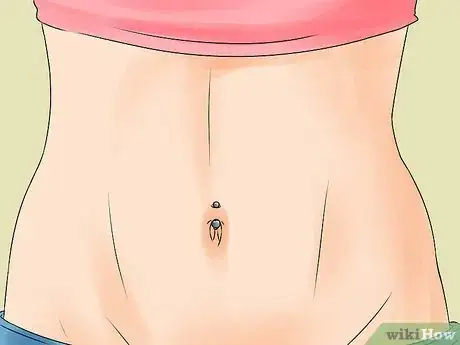


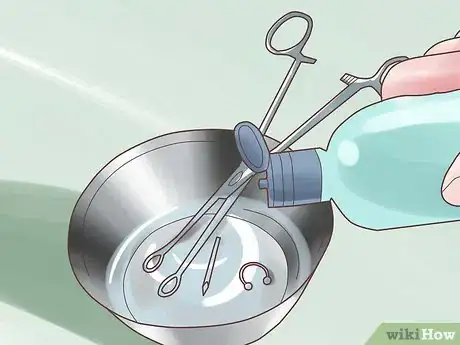




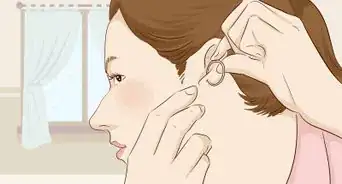

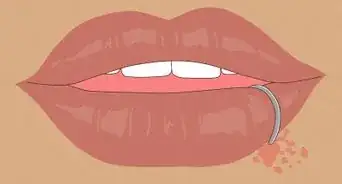








-Step-19-Version-3.webp)







